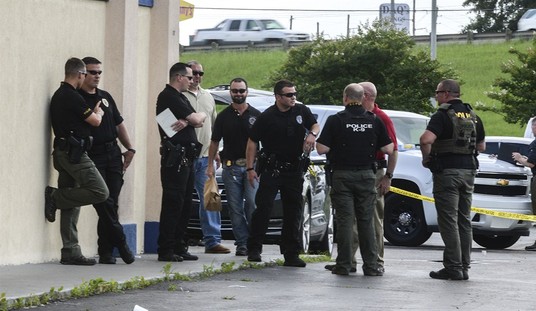Tunisia’s dictator Zine El Abidine Ben Ali fled the country this week. After weeks of demonstrations and riots in this Arab North African country, during which dozens of people were shot in the streets by security forces, the president for life opted for early retirement after 23 years in power, perhaps so he might die one day in his bed instead of less pleasantly at the hands of his subjects.
A young man in the town of Sidi Bouzid set himself on fire to protest the government’s confiscation of his food cart — his sole source of income — and his fellow citizens responded in kind by setting the country on fire. They’re angry about the usual things citizens who live in police states get angry about — corruption, a dearth of political rights, media censorship, and economic stagnation. Diplomatic cables published by WikiLeaks may even have played a role here by exposing just how lavishly Ben Ali and his wife Leila lived on the backs of his people..
The regime may well survive with a different man at the helm. That’s how things stand today. Foued Mebazaa, Ben Ali’s former speaker of parliament, is in charge at the moment. A different secular police state altogether might come to power. A reactionary Islamist dictatorship is always a possibility after a Muslim country’s government falls. And maybe — maybe — a democratic system of sorts might emerge.
Unlike in war-torn Afghanistan or fanatical Saudi Arabia, Tunisian democracy is a real possibility. It’s a bit unlikely as it’s only one possible option of many, but it could happen. Mebazaa himself is now promising, perhaps even sincerely, “a better political life which will include democracy, plurality and active participation for all the children of Tunis.”
I’ve spent time in more than a dozen Muslim countries, eight of them Arab, and Tunisia is — or at least was before this month when things fell apart — one of the most advanced and stable. The majority of its citizens belong to a well-educated middle class, the infrastructure seems no worse than Europe’s, and a high percentage of women in the cities have discarded the veil and the headscarf and dress like Europeans. The latter may sound like a small thing, but in a Muslim country, it visually indicates how much women’s rights have advanced. The overwhelming majority live near the coast in cosmopolitan cities that have traded and been in cultural contact with Europeans for millennia. It’s not a Western country, but it fully belongs to the Mediterranean region and is oriented more toward the West than most Arab countries.
Tunisia is wedged between Libya, which Moammar Qaddafi rules like a barking mad scientist, and Algeria, which during the 1990s suffered a vicious civil war as murderous and destructive as Lebanon’s and Iraq’s. Tunisia, though, averts its eyes and looks north. “Our reference groups are the French and the Italians,” culture minister Abdelbaki Hermassi told Robert Kaplan of the Atlantic Monthly a few months before the terrorist attacks on September 11, 2001, “not the Algerians and Libyans.”









Join the conversation as a VIP Member